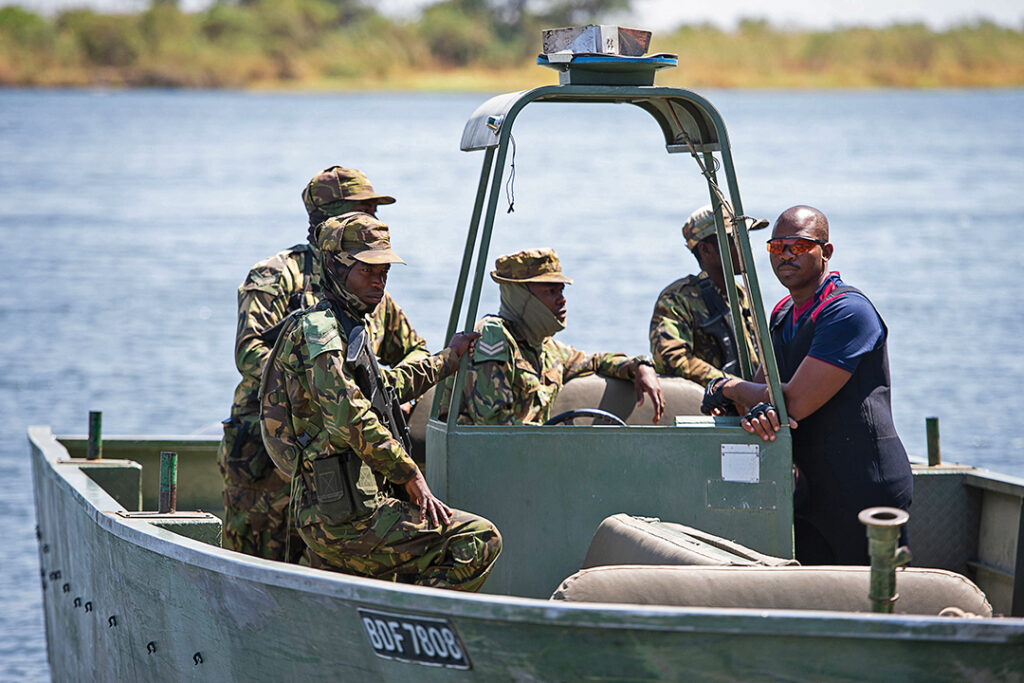U.S. Africa Command Staff
COVID-19 has slowed global commerce, but it has not stopped criminals intent on stealing Africa’s natural wealth.
In fact, some poachers, loggers and maritime criminals see the virus as an opportunity. They are trying to take advantage of the lockdowns and diversion of security resources to expand their operations.
The huge scale of their crimes demands a unified response.
About 11,000 square kilometers of rainforest in the Congo Basin are logged each year — most illegally — so wood can be sent overseas to feed furniture demand.
Off West Africa’s coast, fleets of foreign trawlers are scooping up fish and decimating a resource that communities have relied on for generations. One estimate says illegal fishing costs West Africa $2.3 billion per year.
Across the continent, poachers are destroying populations of rhinos, elephants, pangolins and other animals to supply ingredients for the unproven claims of traditional Chinese medicine. These wildlife poachers imperil the continent’s rich biodiversity and its $29 billion annual wildlife tourism industry.
Although the problem is daunting, new technology can give security forces an advantage. Artificial intelligence and computer learning have the potential to make surveillance more effective than ever. Tiny cameras can be programmed to spot poachers or suspicious vehicles the moment they enter game reserves. Customs officials can use machine learning programs to help identify suspicious cargo and focus their inspections on finding illegal wildlife shipments. In the Congo Basin, a radar-based alert system tracks illegal logging operations so security forces can shut them down.
Solving these problems will not be easy. They require attacking financial flows that enable trafficking, prosecuting powerful kingpins, surveilling routes and increasing border enforcement. Trafficking is a global problem, but the willpower exists to dismantle the networks. If security forces can forge alliances with other nations, the private sector and nongovernmental organizations, the continent can emerge from COVID-19 with a renewed emphasis on protecting natural resources for generations to come.

